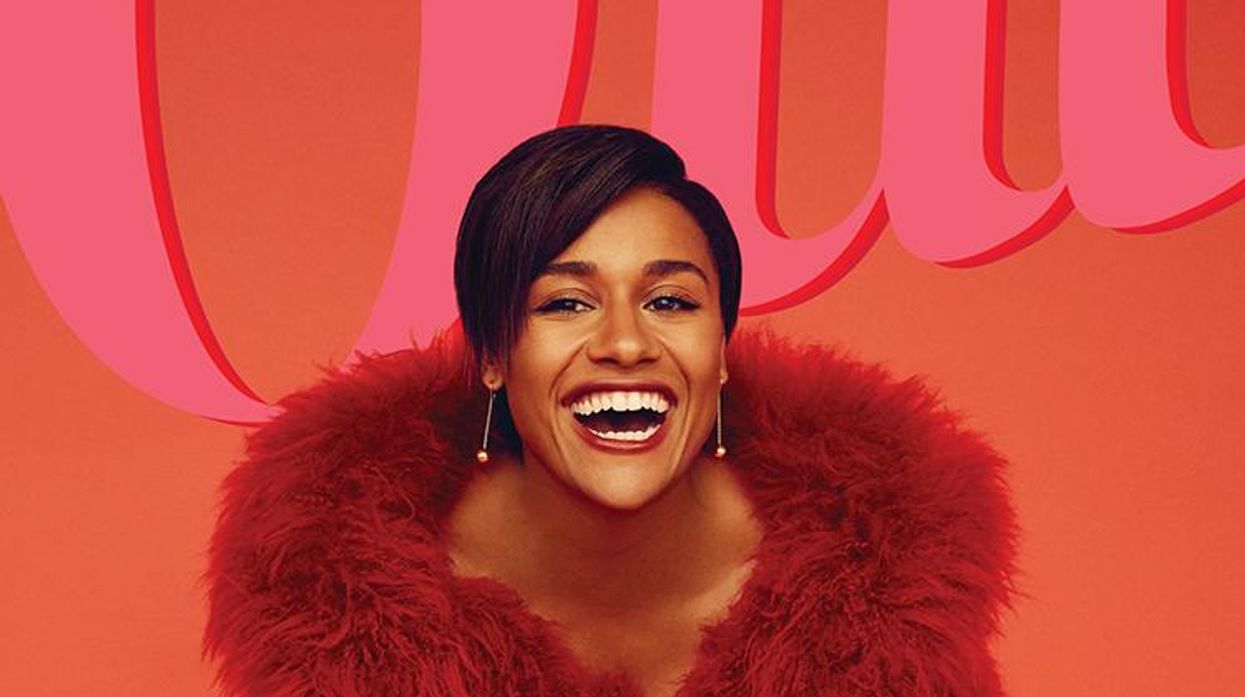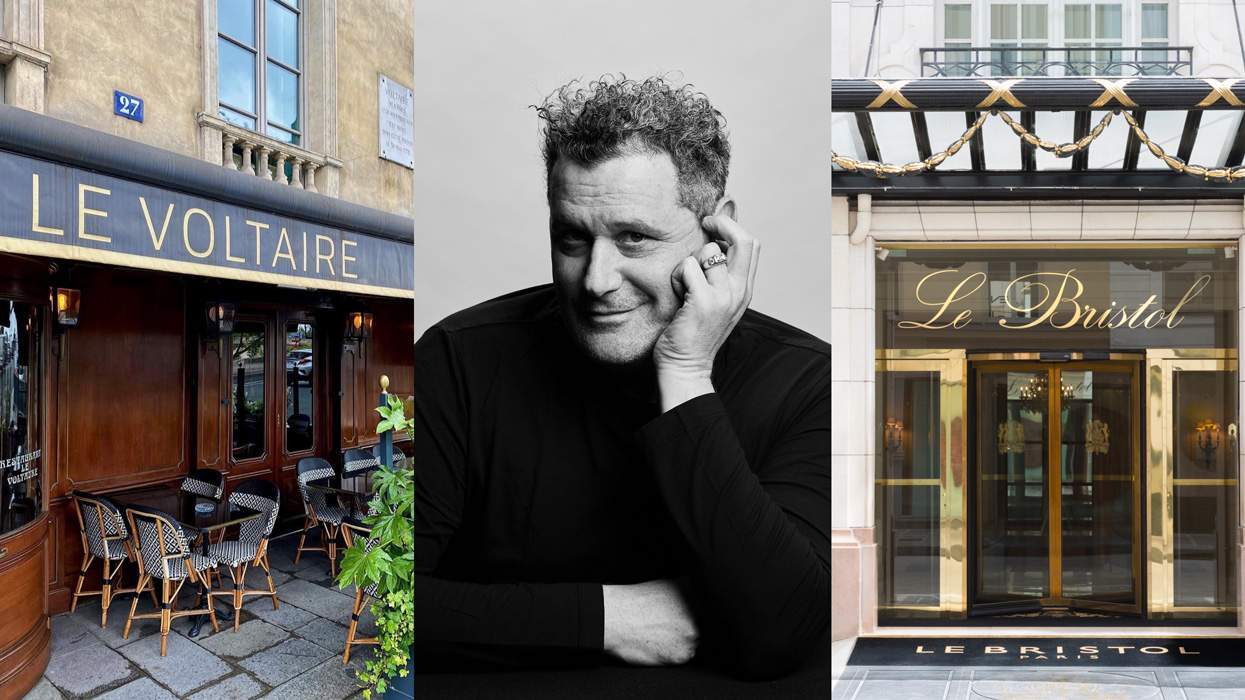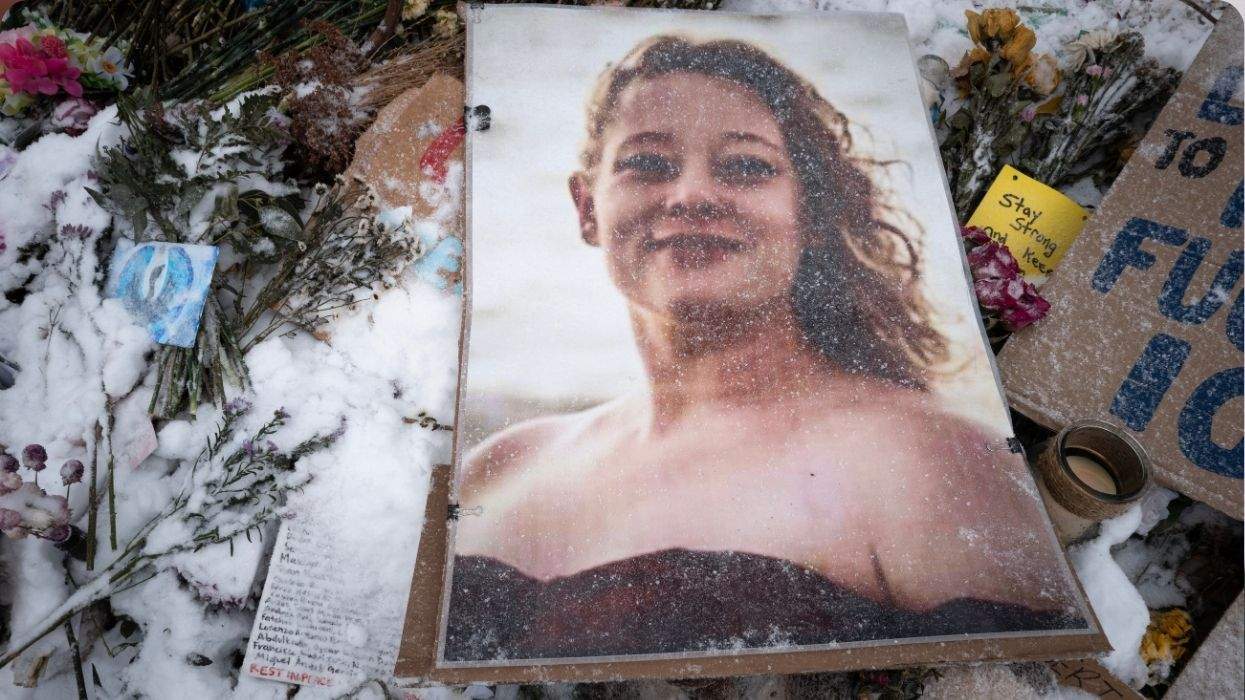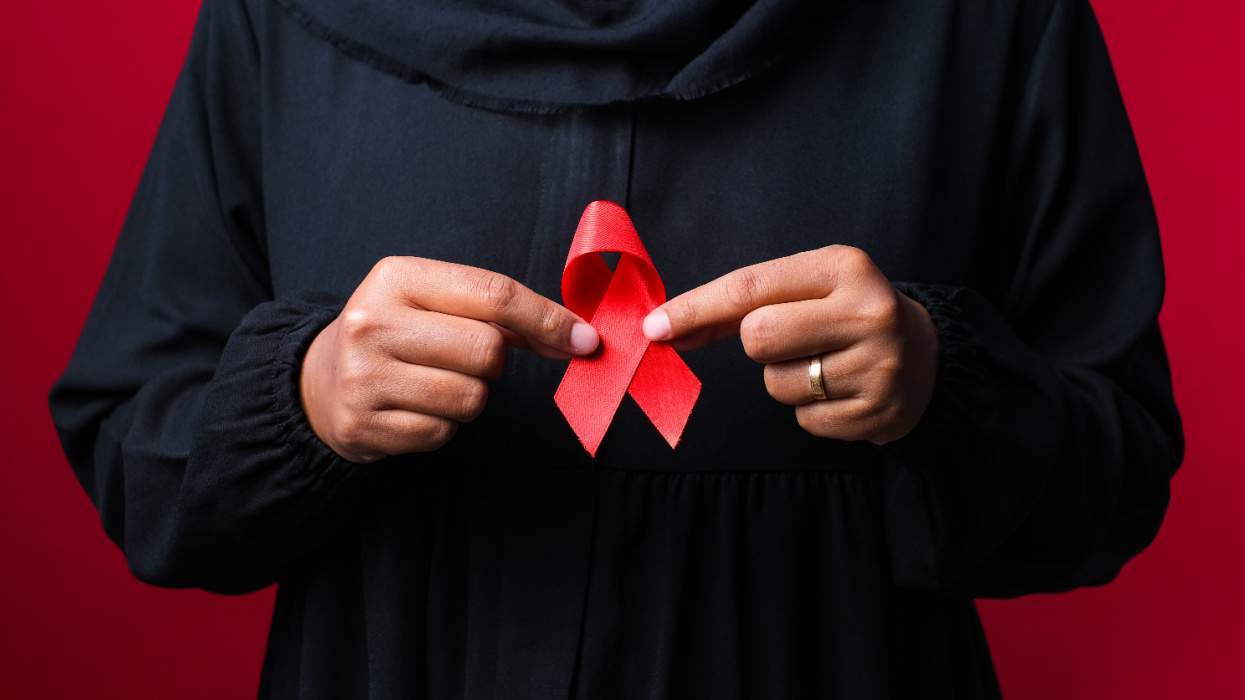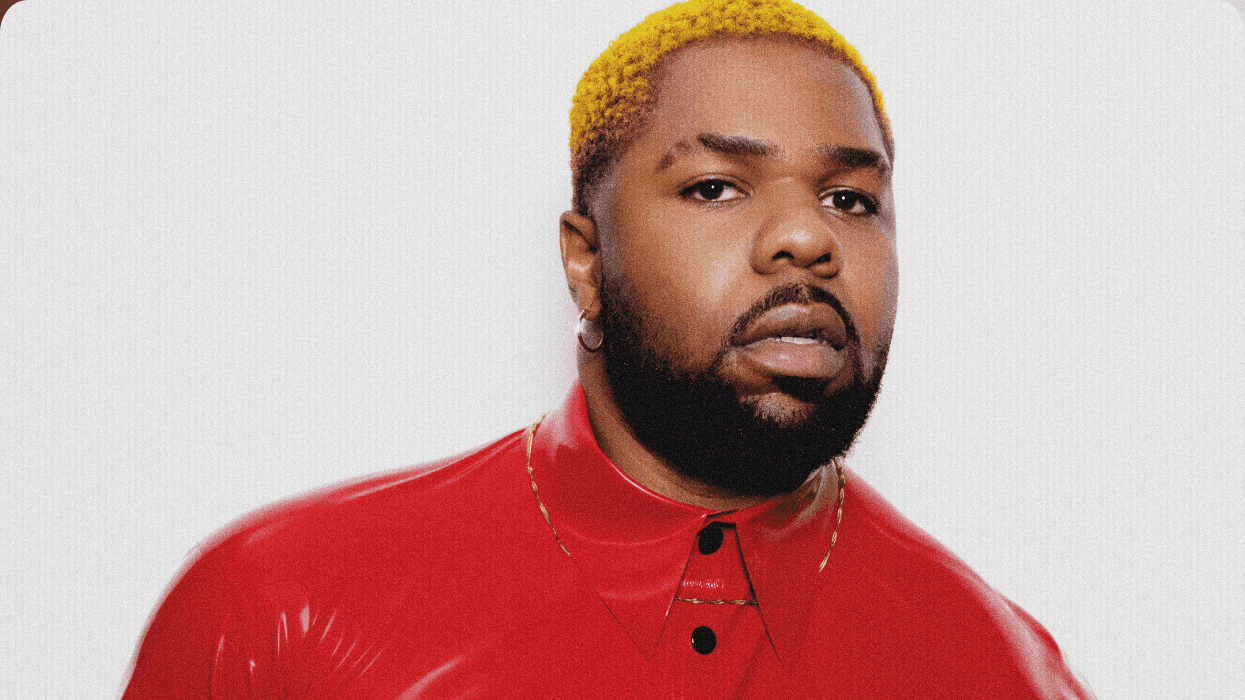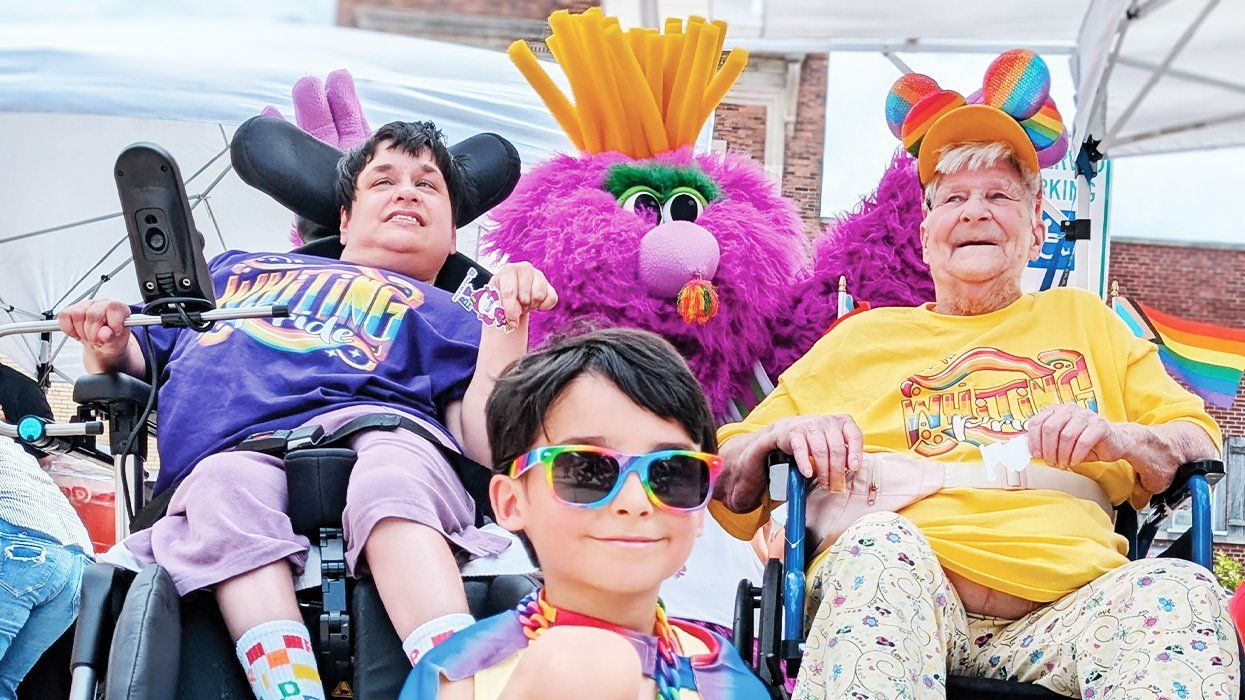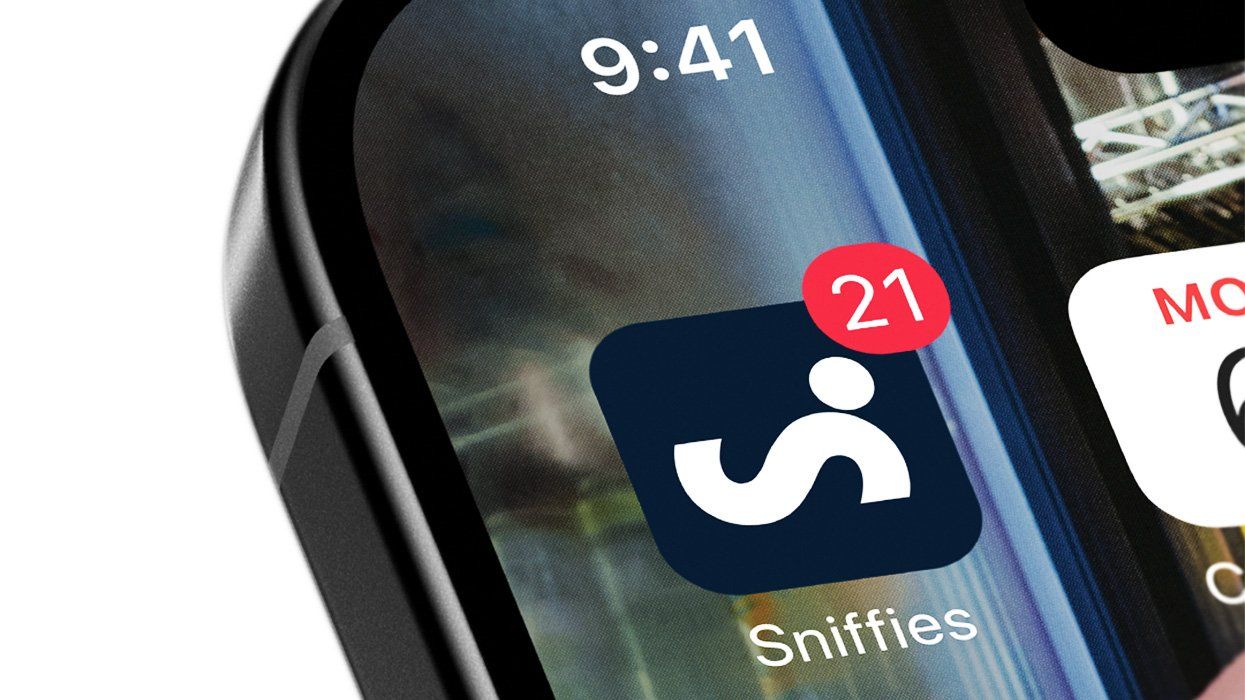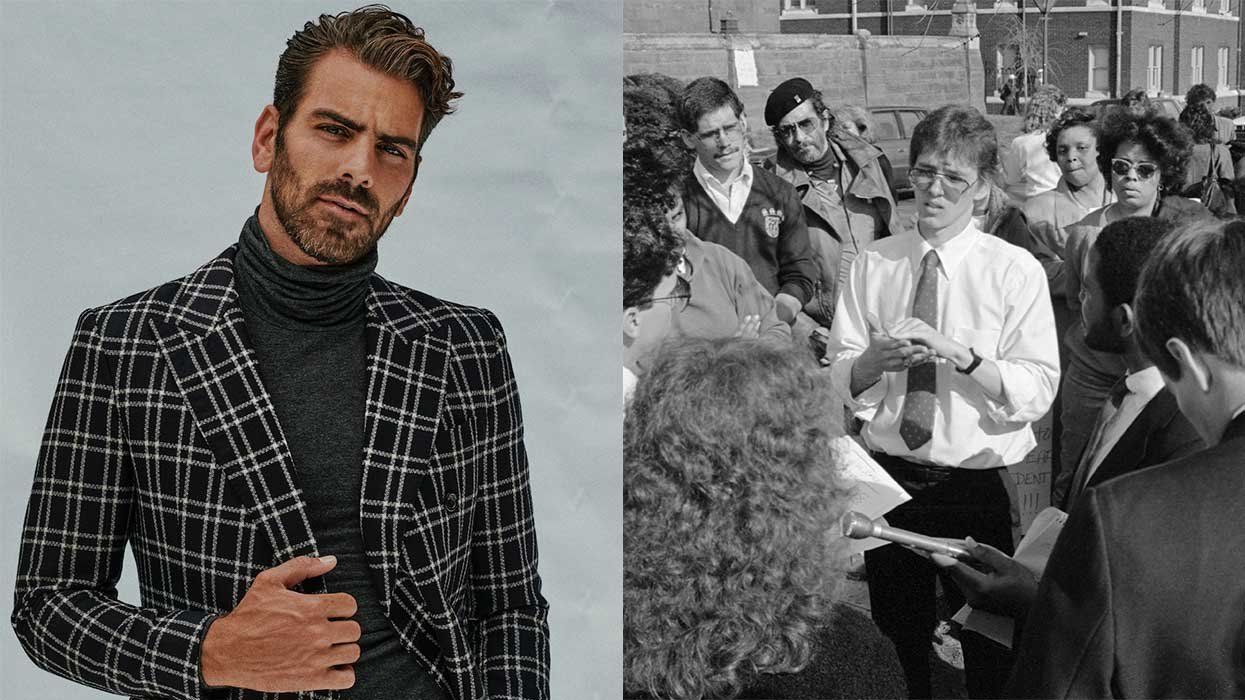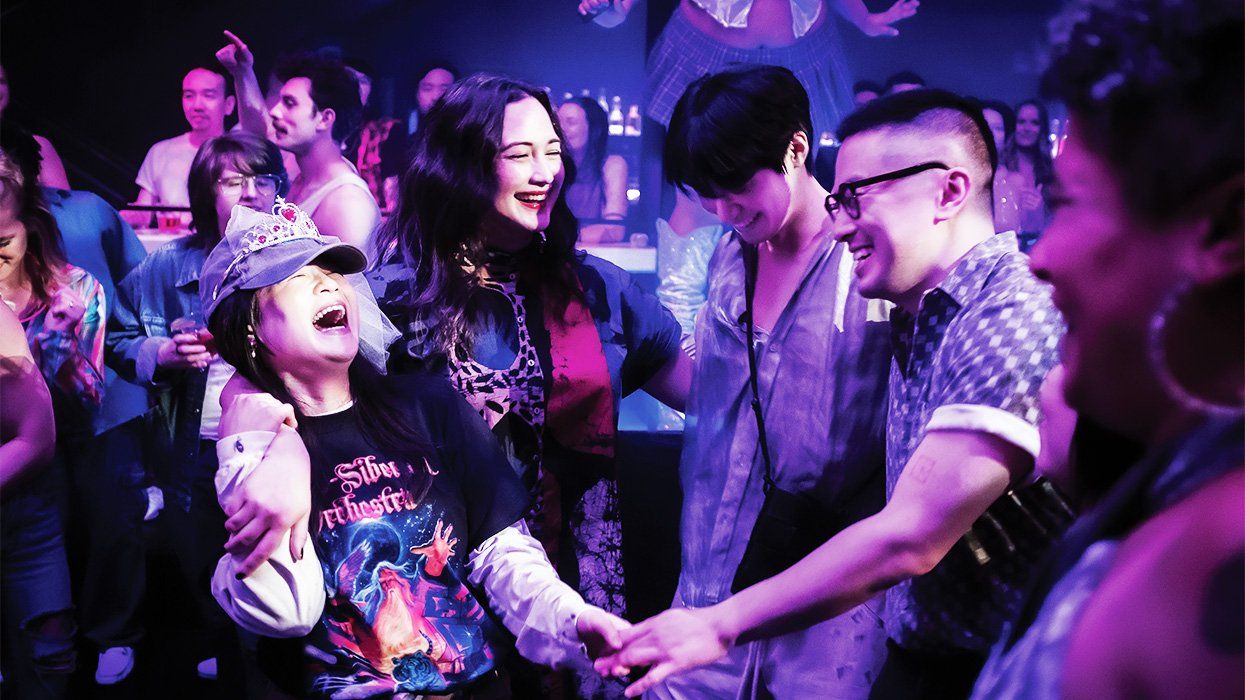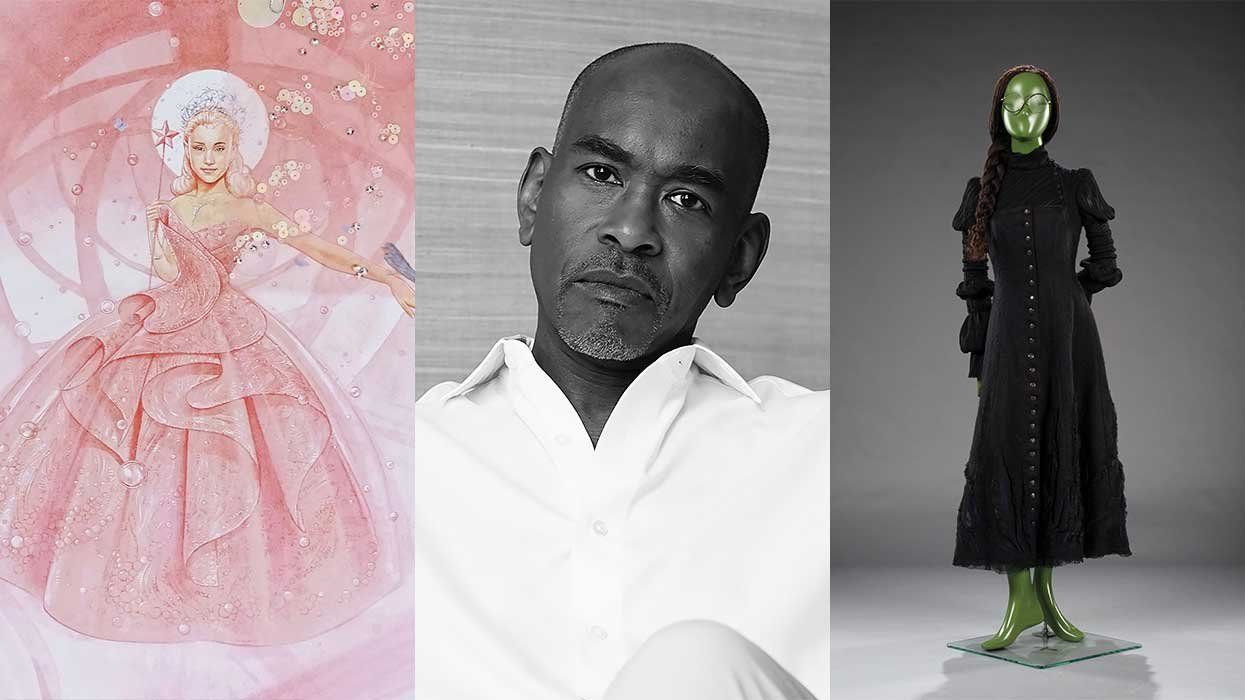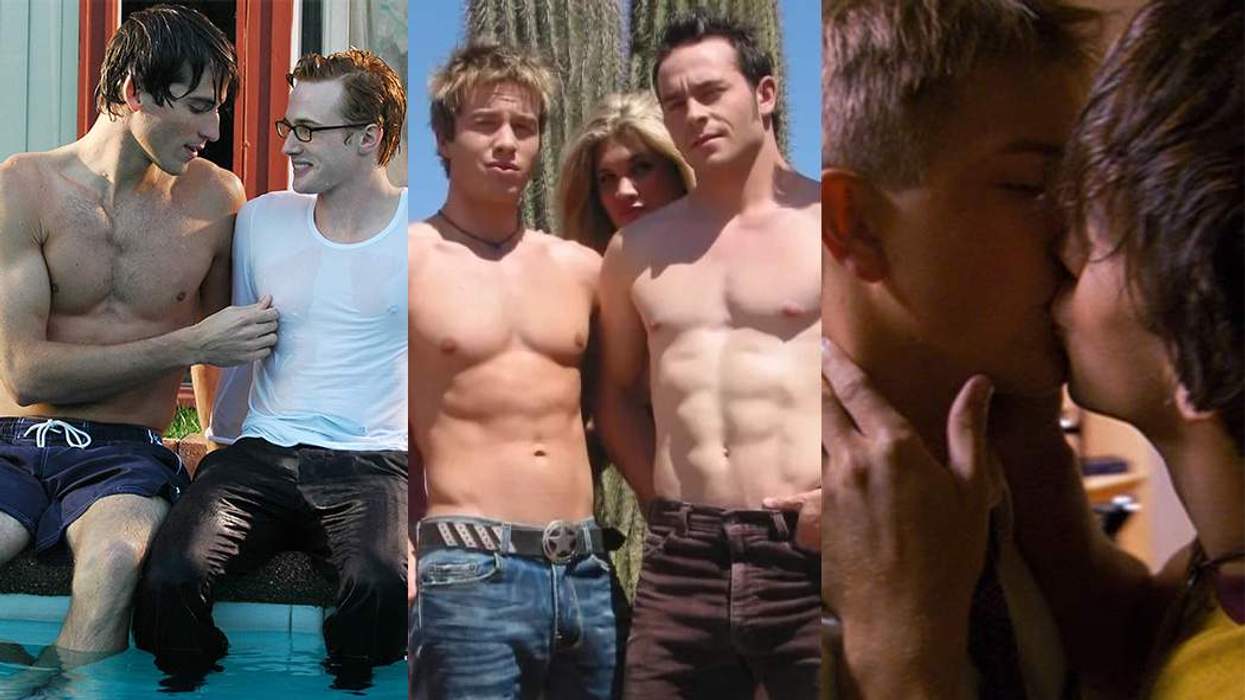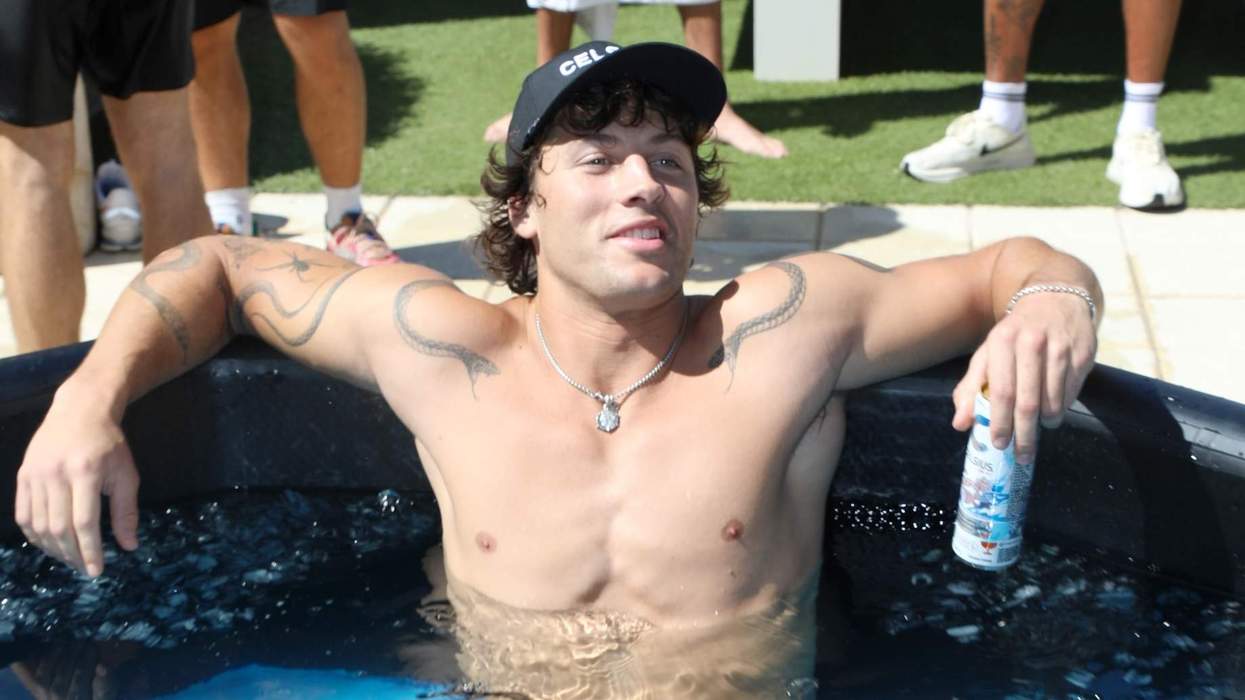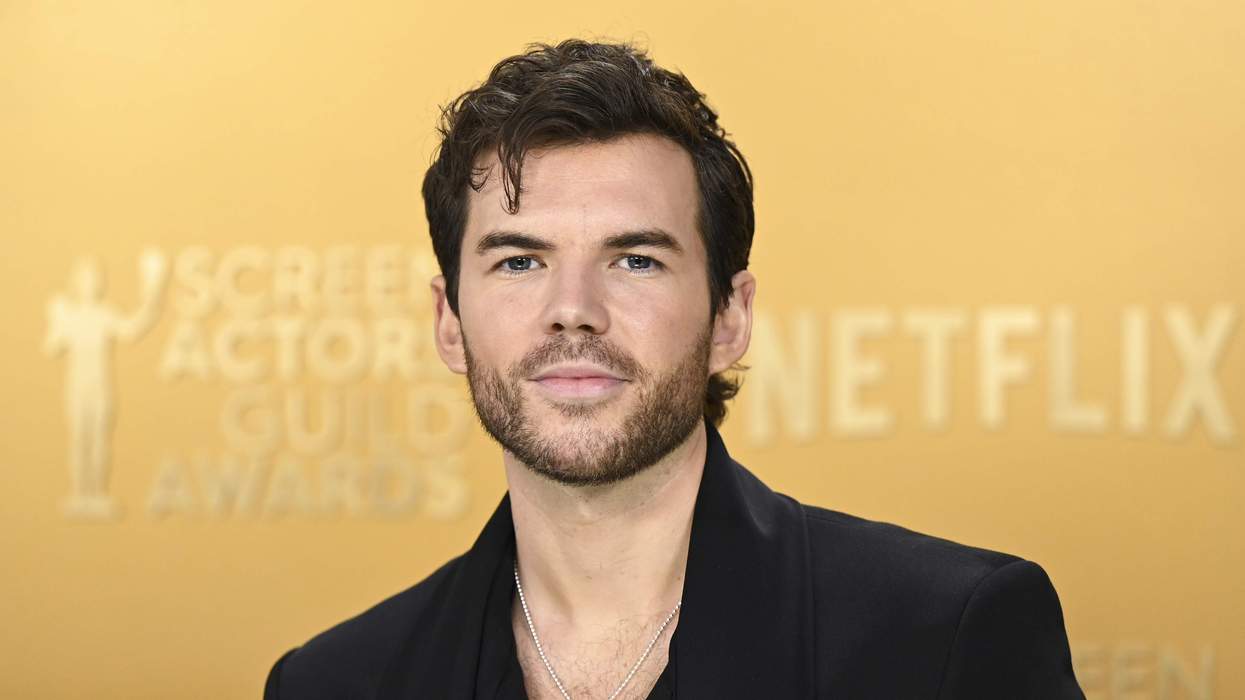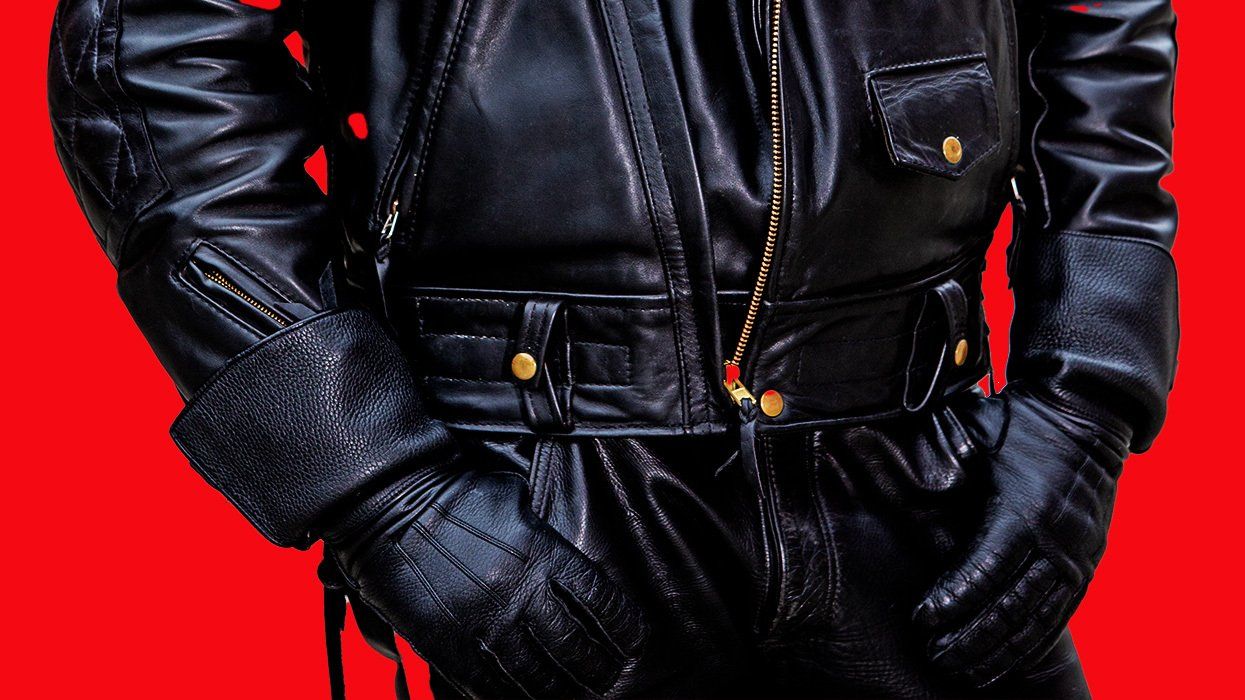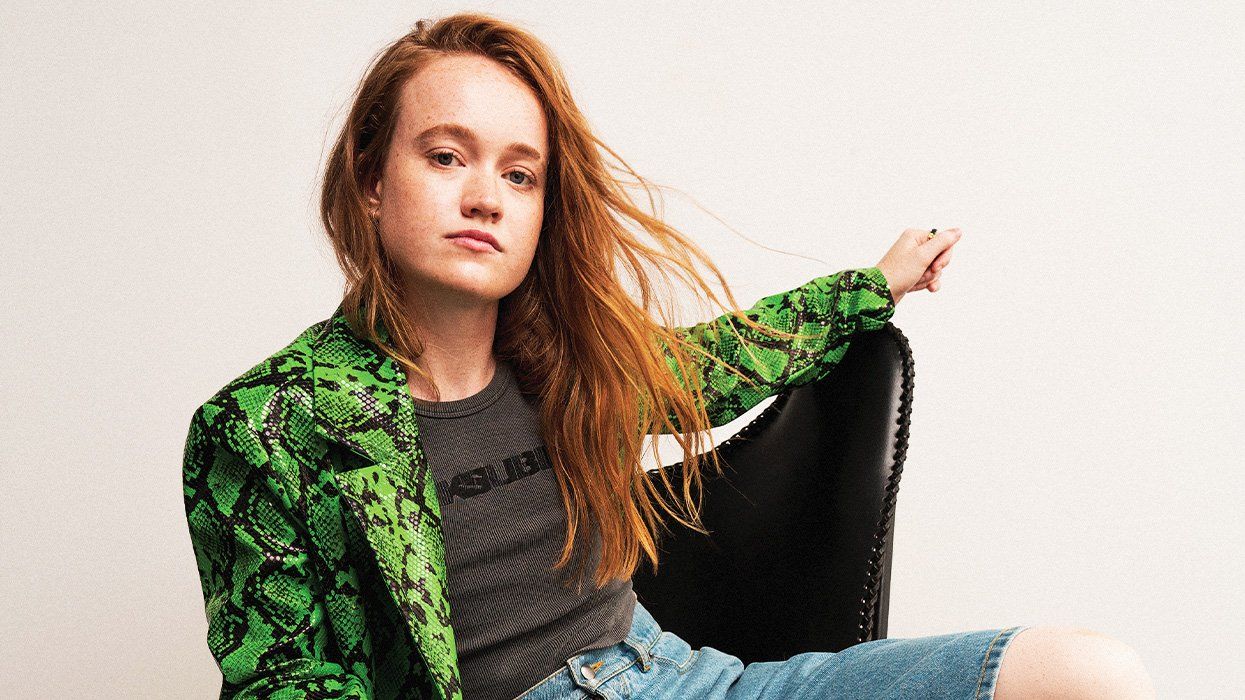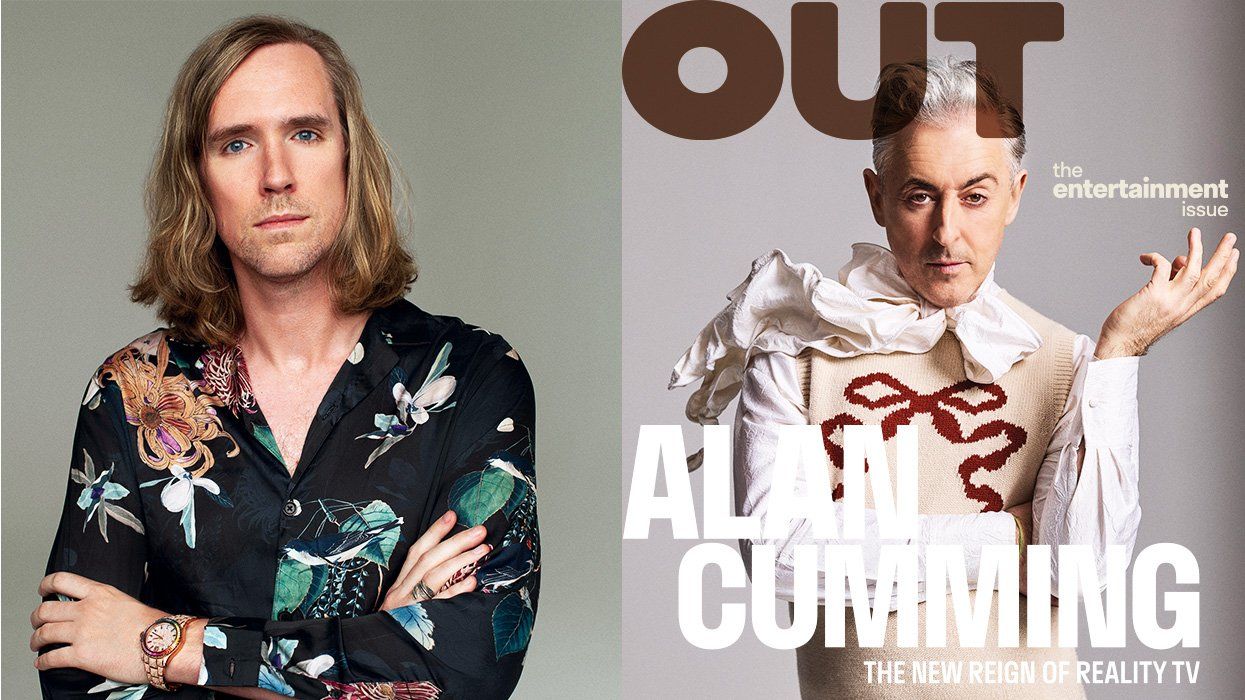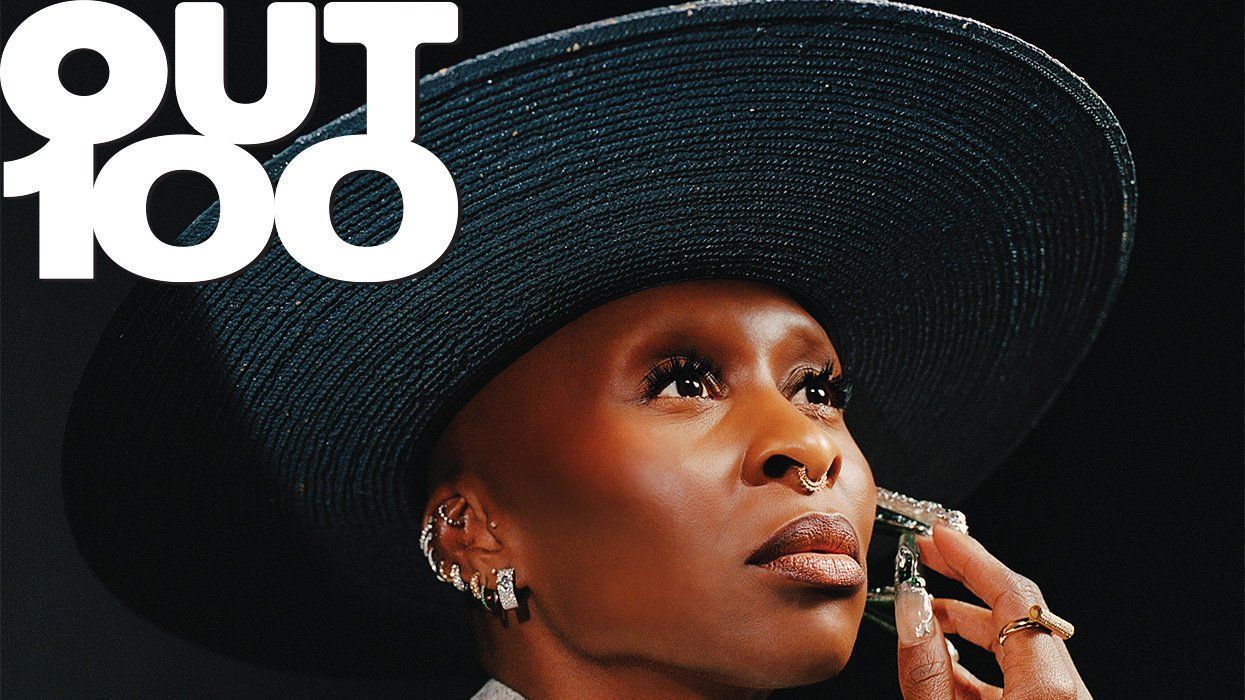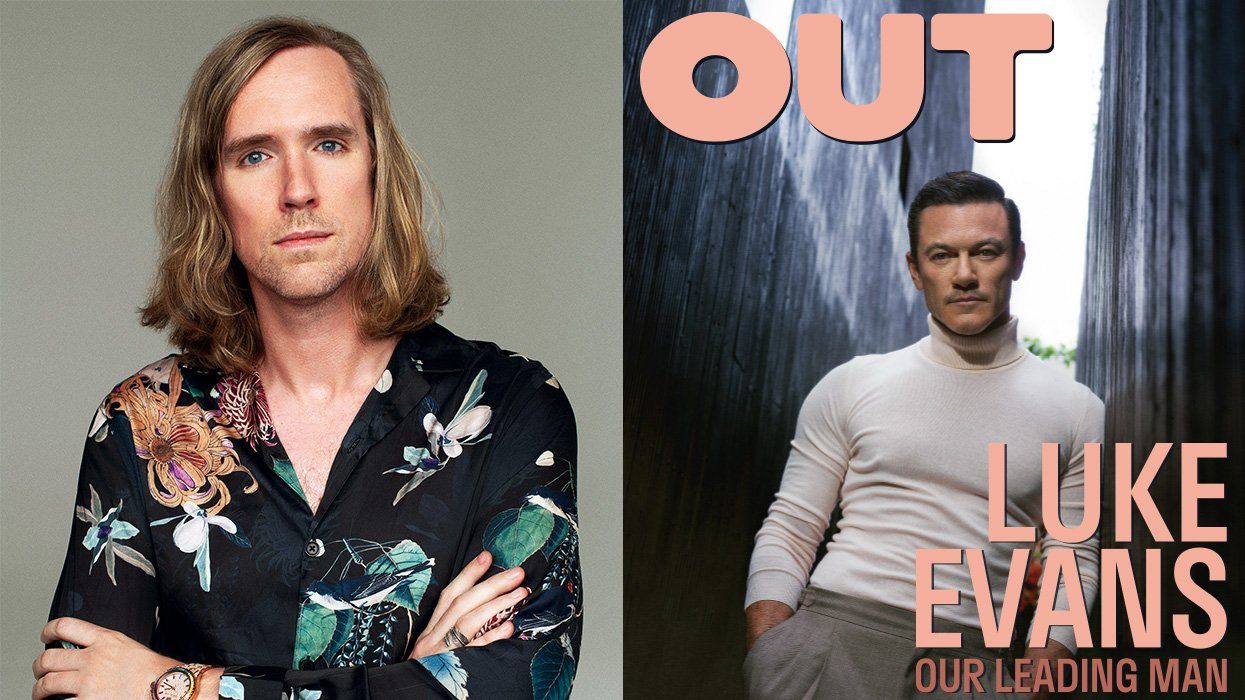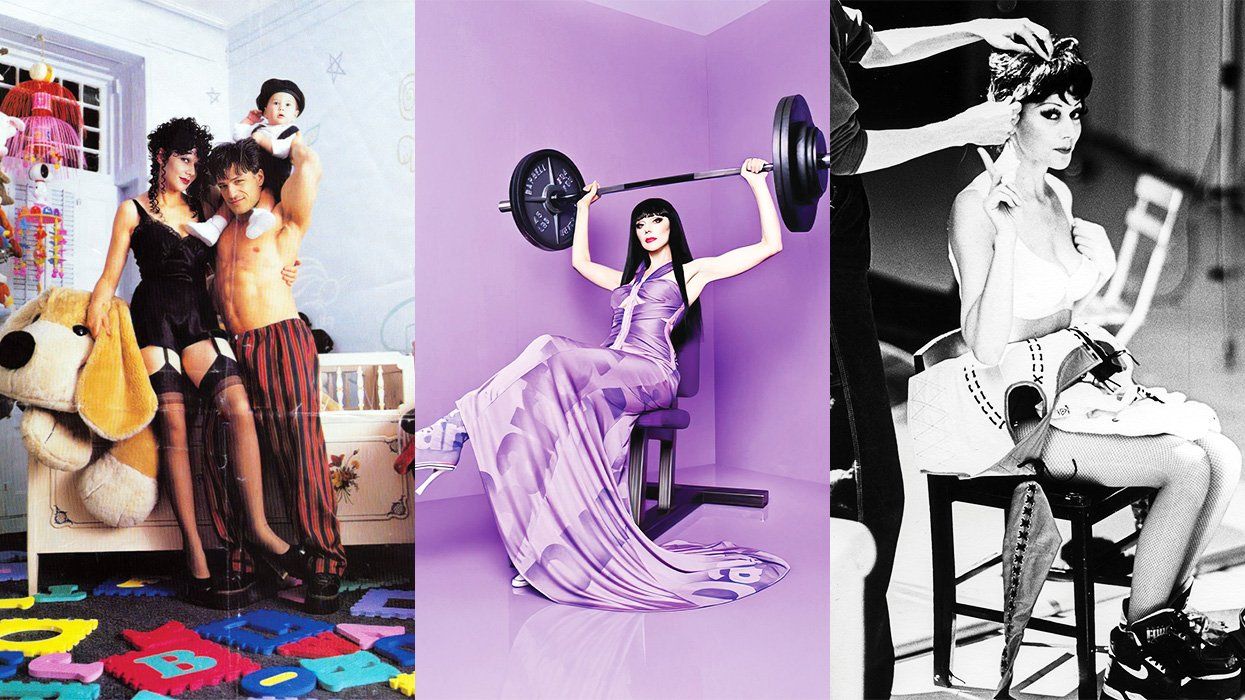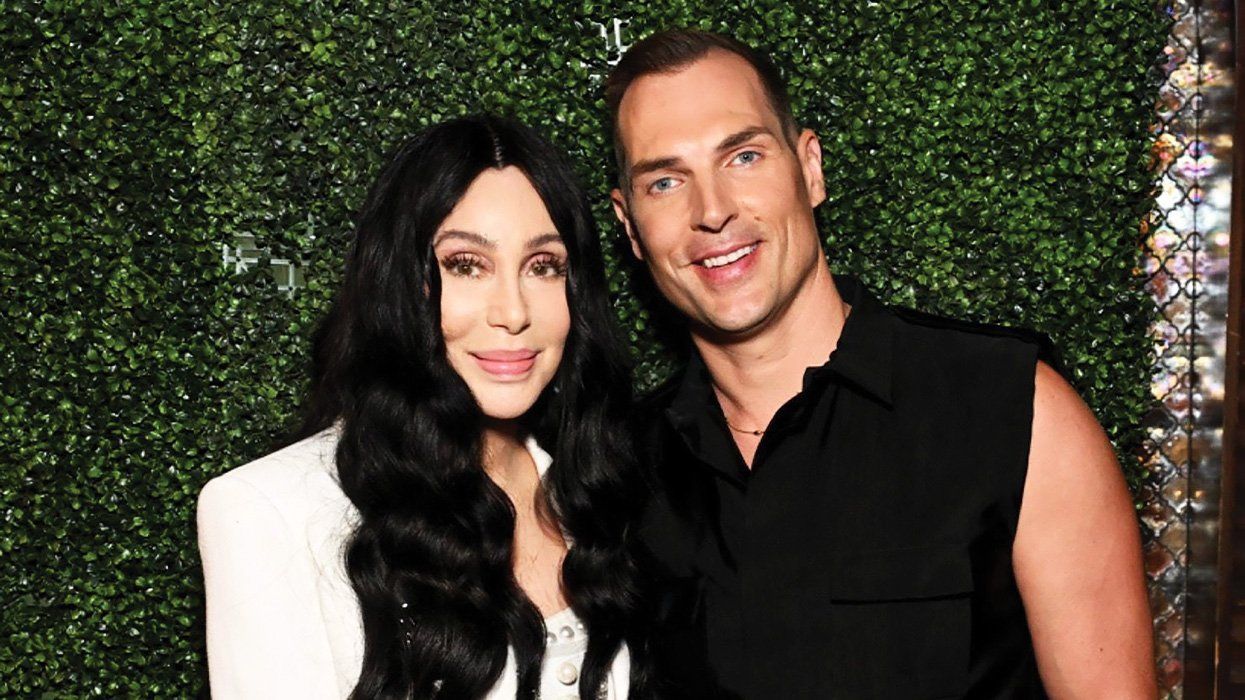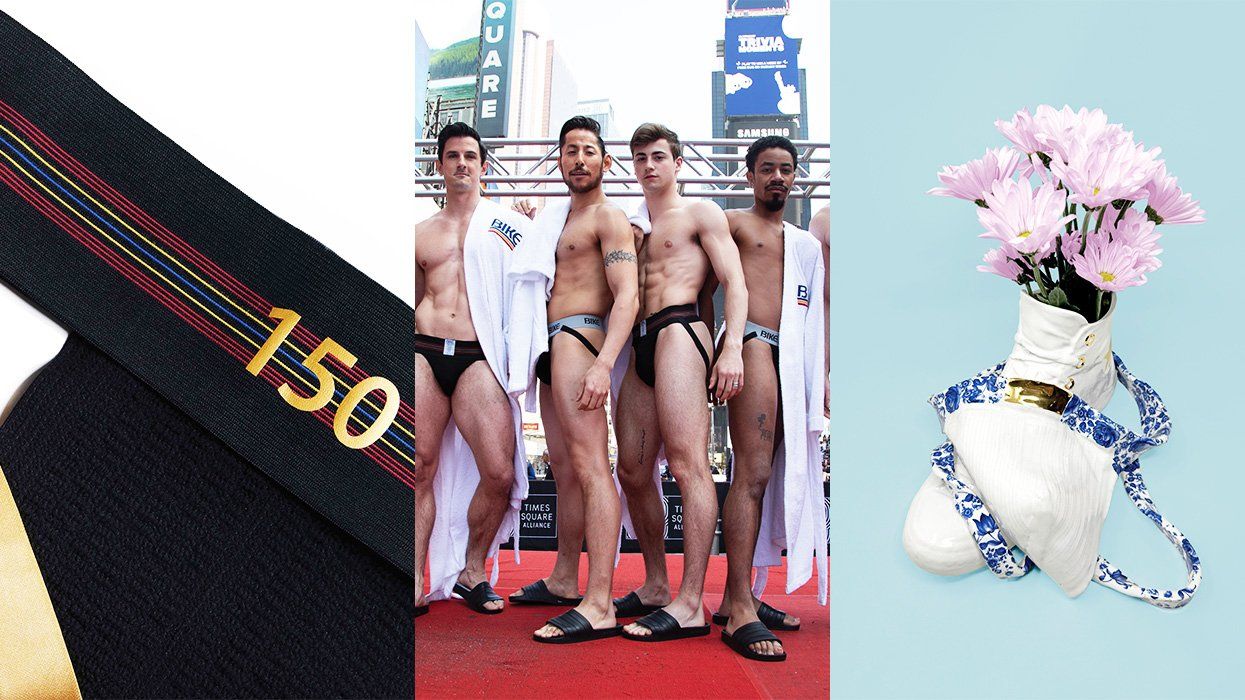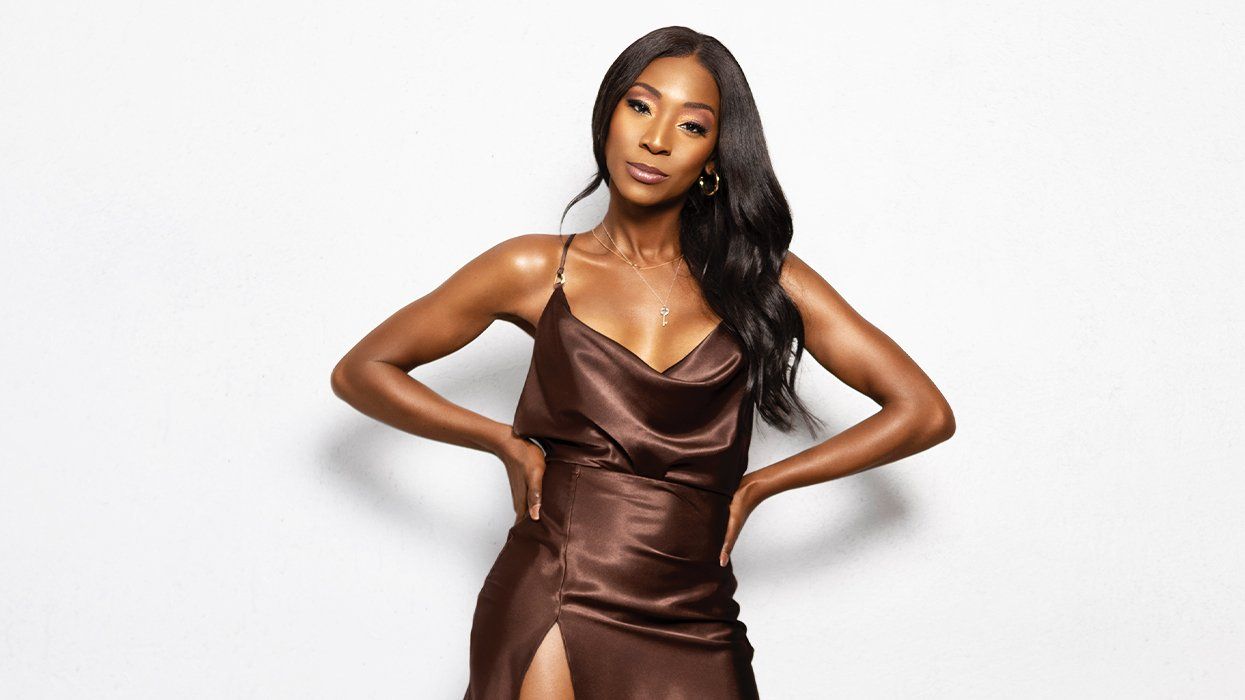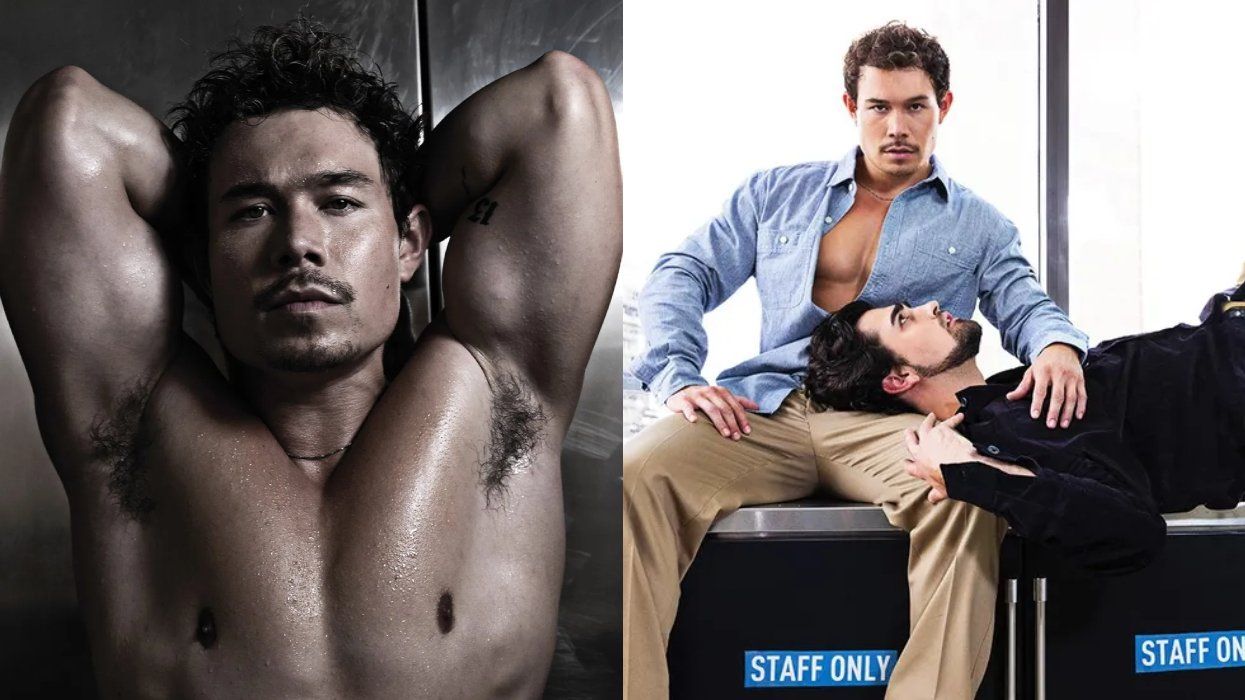It's no secret that Ariana DeBose is the Bullet. In the Pulitzer Prize-winning musical Hamilton, she became the first actor to infamously embody the projectile that would eventually take out Alexander Hamilton. A pivotal role for the equally gifted dancer, vocalist, and actor, it may not have been afforded a show-stopping solo, but its significance has been deconstructed by Hamilton enthusiasts for years. If DeBose was a bullet in 2015, she's a firework in 2021.
The triple threat, now 30, recently had breakout roles as the popular girl who grapples with coming out in The Prom and as the progressive schoolmarm with killer tap moves in Schmigadoon!. At this year's Kennedy Center Honors, she performed a high-kicking tribute to Debbie Allen. Next, she is poised to become a household name by starring as Anita in West Side Story from director Steven Spielberg and Angels in America writer Tony Kushner. With every step, this Afro-Latinx queer woman is creating inroads for those who haven't seen themselves represented.
"This concept of changing narratives, providing different perspectives, and giving women agency, that does seem to be a through line for my career," DeBose says. "It does date back to Hamilton. The Bullet didn't speak, but she said a lot."
"I believe in the evolution of women," she says. She'd recently performed a breathtaking version of "The Wizard and I" for the PBS special Wicked in Concert alongside luminaries like Cynthia Erivo. She long believed the opportunity to sing that Idina Menzel-originated song was out of reach.
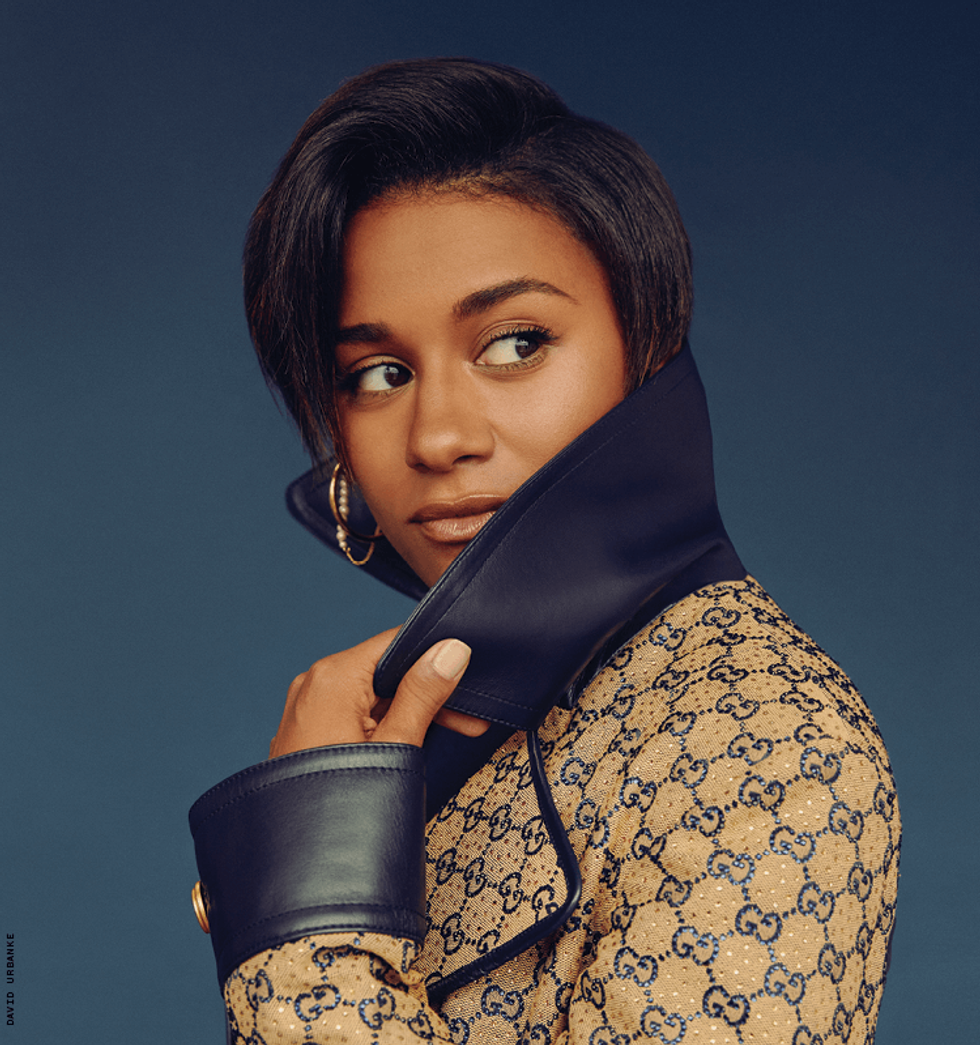
"If you had told 20-year-old Ariana DeBose that she would sing anything from the Wicked score in any arena, she would have laughed at you," DeBose says. "There was no space for someone like me, someone to look like me, identify like me, or sound like me. There just was a time when I was never going to be asked to potentially fill that need."
Born and raised in North Carolina, DeBose studied dance from age 3. She landed on the national radar in 2009 as one of the top 20 competitors on So You Think You Can Dance. She then appeared in the national tour of Bring It On, and on Broadway as Mary Wilson in Motown and in the revival of Pippin (where she understudied and took over as Leading Player for a time). That was all before Hamilton.
A game-changer for representation on Broadway with a cast of primarily BIPOC actors, Hamilton had an influence on musical theater that can't be overstated. But DeBose's career is also a beacon of how to shake things up in the best possible way. Even the outwardly light-hearted homage to the Classical Hollywood musical film, Apple TV+'s Schmigadoon! plays with representation. Starring Cecily Strong, Keegan-Michael Key, Kristin Chenoweth, and Alan Cumming, the show centers nonwhite actors, affords women agency, and gives queer characters the chance to be out. Indeed, DeBose's Emma Tate is a catalyst for change. Midway through, she performs "With All of Your Heart," a song-and-dance in the classroom that is a pearl of pedagogical wisdom and the series' standout number. "Schmigadoon! asks its audience to consider some things that felt silly but actually had great substance," DeBose says.
"That is the role of art right now. We're seeing so many movements converge at once, like Black Lives Matter, the #MeToo movement. It's really interesting for a show like Schmigadoon! to make space for that," she says.
Last year, DeBose also moved the needle for queer representation in Netflix's The Prom. Ryan Murphy's film adaptation of the stage musical stars DeBose and another queer actor, Jo Ellen Pellman, as girlfriends Alyssa and Emma. On the surface, it's a sweet love story with a glorious Hollywood ending. On a deeper level, it stars two queer actors playing queer girls in an interracial relationship on one of the world's largest streaming platforms. That matters.
"Alyssa was very important to me because I still believe we've never really seen a young, Black-presenting, queer girl, whether she's ready to come out as lesbian, gay, or otherwise. I did not have that growing up," she says. She cites The L Word: Generation Q and Lena Waithe's character in Master of None as examples of Black queer visibility that barely existed at the start of her career. Things have changed to a degree. But early on, she was subjected to stereotypes.
"When I was first auditioning, I remember some folks asking me to be more 'urban.' Or 'Would you mind putting your hair away?' I was actually on Broadway and a director told me one day, 'You look like you've stuck your finger in a light socket,'" she shares. She was in a mood that day, she says, and fired back with a retort about his lack of hair. She still got the part.
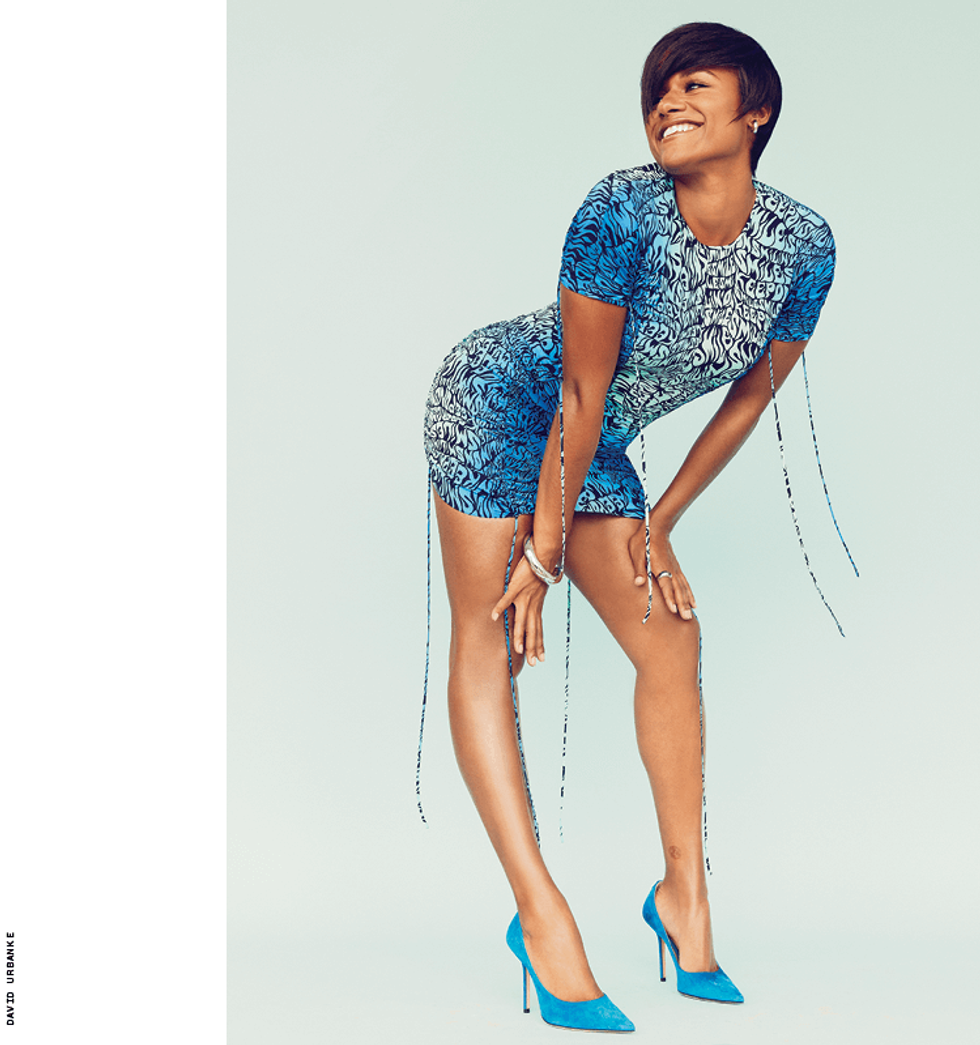
In terms of her queerness, DeBose didn't do a major public coming-out. She's been out since her career hit warp speed. One of her earliest interviews, in 2015, focused on her relationship with a woman, a props master she'd met on Broadway (they are no longer together, DeBose says). While her coming-out was outwardly seamless, she faced some stereotyping behind the scenes.
"Suddenly, if you say, 'I'm queer. I just love humans,' or 'Yeah, I really love the ladies,' [people in the entertainment industry are] like, 'Cool, cool. So you must be butch. You must wear flannel. And you must be a steelworker.' That drives me crazy," she says.
Even with a career that includes a starring role in Broadway's A Bronx Tale and a Tony nomination for playing Donna in Summer: The Donna Summer Musical, DeBose has moments of self-doubt. But as her Prom character is a light for queer kids, the knowledge that her work has helped those who need to see it inspires her.
"I heard from a lot of young people who are not out yet, who run the spectrum of identity and gender presentation," she says. "What that showed me was the unifying quality around Alyssa is that I was hearing from people who weren't quite ready to step into their truth, not that they didn't have the capability to step into their truth, but just weren't quite there yet."
"On days when I'm like, I'll never get another job. I'm terrible," she shifts the negative self-talk and thinks, "You've helped a few people, you're OK, girl. Get over yourself." Her work on The Prom led her and Pellman to cofound the Unruly Hearts Initiative, which raises funds for LGBTQ+ youth organizations like the Trevor Project, Point Foundation, and Covenant House, where she sits on the board.
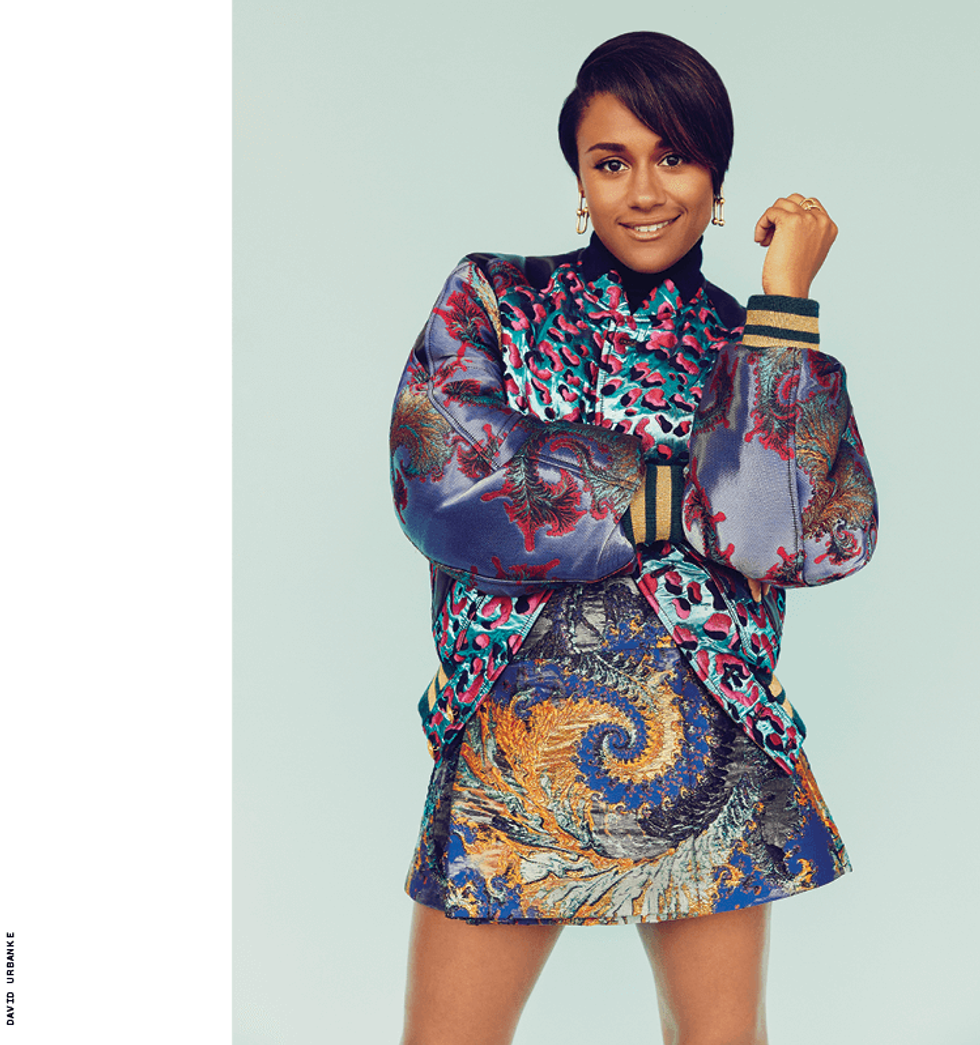
As for changing narratives, the 1961 film adaptation of West Side Story from Robert Wise and Jerome Robbins is an undisputed classic. But like most Classical Hollywood films, it has major representation problems. The central characters of Maria and her brother Bernardo, who are Puerto Rican, were played by white actors Natalie Wood and George Chakiris (and that's just the beginning). In the new film, DeBose steps into the role of Maria's confidante Anita, famously played in the original movie by Rita Moreno (who is in the new film). It's an opportunity for DeBose to portray a character she's adored since watching the film on the floor of her grandmother's living room as a kid.
"I really liked the lady in the purple dress," she recalls thinking. "She's pretty, she sort of looks like me.... I could dance like that. I believed that. I believed I could dance like that. Like, I don't know what planet I came from."
With Spielberg at the helm and Kushner's script, West Side Story promises to be a sensation, and it's likely to cement DeBose's status as a mainstream star. She arrives at the role primed to make space for others.
"I am a Black-identifying biracial queer Afro-Latina. I say this frequently, and some people don't really get it, but most people do.... I am America. I am damn near a member of just about every marginalized community," DeBose says. "That is not a red badge of courage, because I have opportunity."
"Every time we see a woman elected to office, there's another crack in the glass ceiling.... Every BIPOC woman or LGBTQ [community] member who gets an opportunity to play a leading role or play a really well-developed character -- a human with agency who might be a little bit messy but who is fully fleshed out -- that is a win."
Creative Director Ben Ward @_benjaminward_
Photographer David Urbanke @davidurbanke davidurbanke.com
Styling Cat Pope @catpope22 for @42west
Hair Takisha Sturdivant-Drew @takishahair for @forwardartists
Makeup Andrea Tiller @andrea_tiller
Video Rafael Arroyo @rafaelarroyo rafaarroyo.com
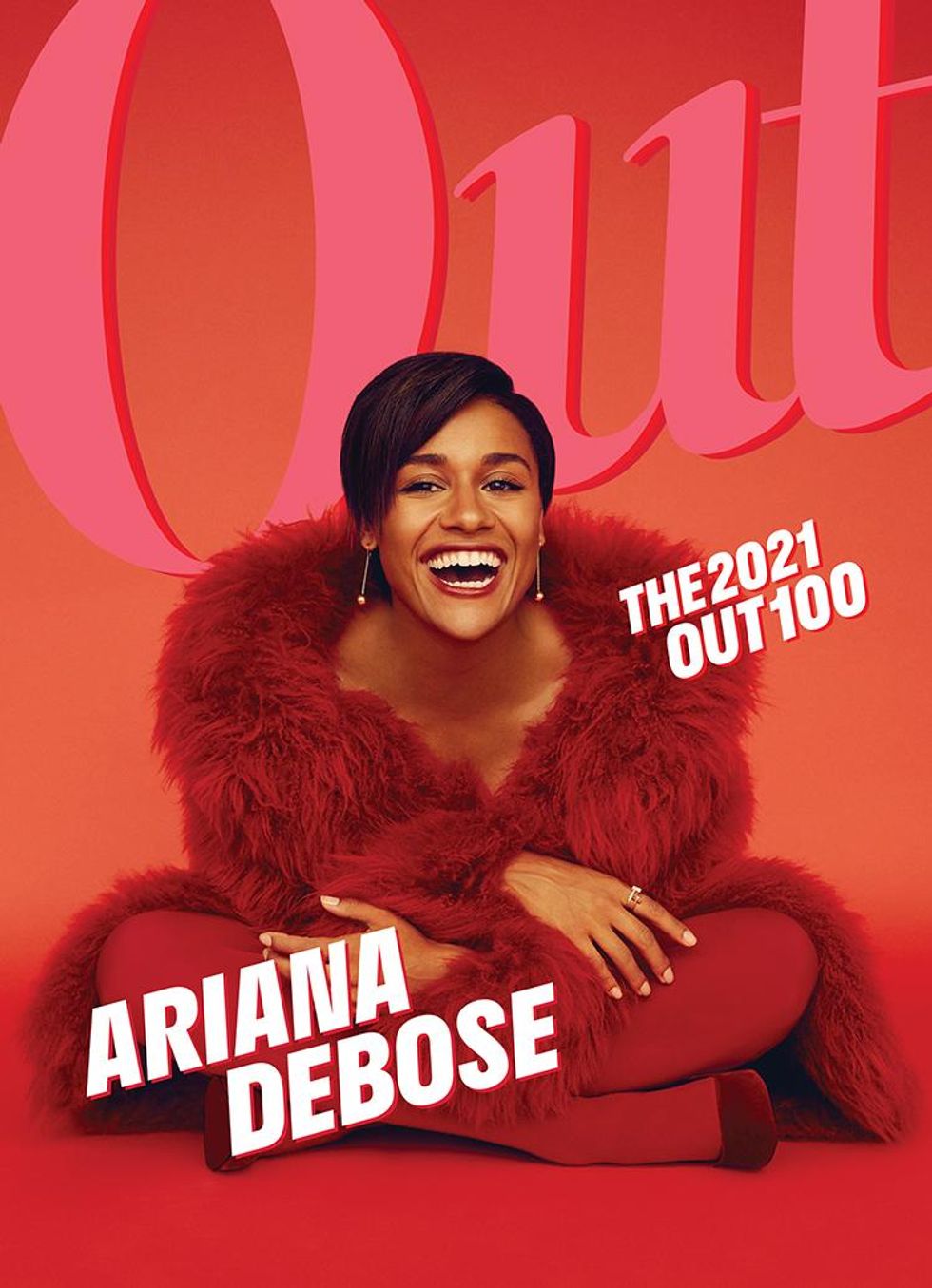
Ariana DeBose is one of seven cover stars of Out's 2021 Out100 issue, which is on newsstands November 30. Since this is also Out's 300th issue, we are running a $3 promotion for a one-year subscription. Subscribe now (the promotion ends on December 1). Otherwise, support queer media and subscribe outside of the promotion -- or download yours for Amazon, Kindle, Nook, or Apple News.


